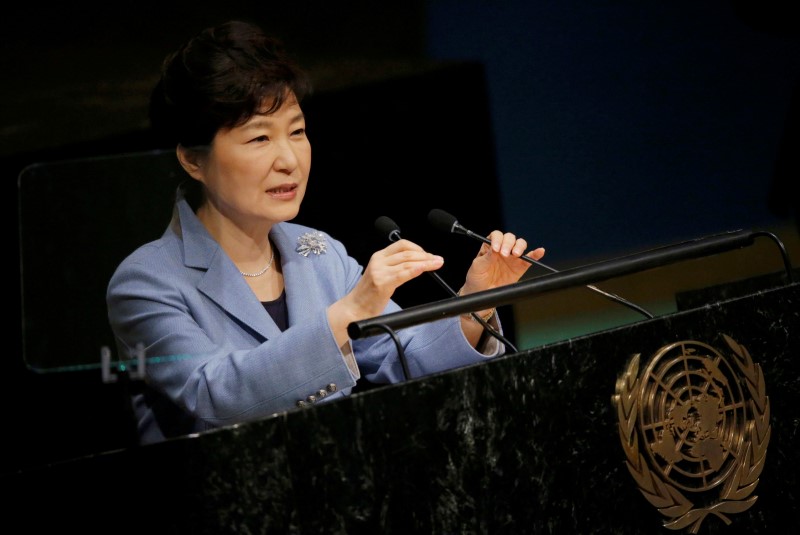By Jack Kim and Ju-min Park
SEOUL (Reuters) - South Korean President Park Geun-hye faces a delicate balancing act between her country's rapidly developing ties with Beijing and U.S. pressure to mend ties with Tokyo as she hosts the first three-way summit in three years with China and Japan.
Sunday's summit will be a diplomatic breakthrough for Japanese Prime Minister Shinzo Abe, who has sought a one-on-one meeting with Park amid a push by Washington for its two main Asia allies to move beyond their bitter wartime history in the face of a growingly assertive China.
"We have conducted an increasingly mature diplomacy both with the United States and with China over the years," a South Korean official told Reuters. "In the case of Japan, things have been more difficult, but we recognise we need to move forward."
South Korean and Chinese ties with Japan have been troubled by what they see as repeated failures by leaders in Tokyo to properly atone for wartime atrocities, in particular for Seoul over "comfort women," as the mostly Korean women forced into prostitution at Japanese military brothels are called.
"China is not ready, Korea is not ready, but the Americans want Japan and (South) Korea to get together," said former Japanese diplomat Kunihiko Miyake.
Park has worked hard to bring South Korea and China, which have one of the world's biggest trading partnerships, closer politically, having met President Xi Jinping six times. Her meeting with Premier Li Keqiang in Seoul will be her fifth.
Few expect an overflowing of goodwill, but for Park the occasion affords an opportunity to be seen addressing issues of regional interest, including promoting business ties and tackling North Korea's arms program.
"I think economic cooperation is likely to feature prominently," Japanese Chief Cabinet Secretary Yoshihide Suga told a news conference.
The summit had been held annually since 2008 to discuss economic cooperation but was discontinued after 2012 amid diplomatic tensions.
South Korea and Japan's business communities welcomed the trilateral summit and the first two-way talks between Park and Abe since they took office. Abe has met Xi twice since November 2014.
Seoul and Tokyo share a long history of economic cooperation but the diplomatic row has affected their trade, which began falling since 2011, Kim Bong-man, head of regional cooperation at the Federation of Korean Industries said.

"So we are hoping that the Korea-Japan summit will be an opportunity to normalize the relationship."